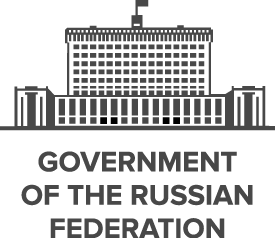Founded in the 12th century, the Principality of Muscovy was able to emerge from over 200 years of Mongol domination (13th-15th centuries) and to gradually conquer and absorb surrounding principalities. In the early 17th century, a new ROMANOV Dynasty continued this policy of expansion across Siberia to the Pacific. Under PETER I (ruled 1682-1725), hegemony was extended to the Baltic Sea and the country was renamed the Russian Empire. During the 19th century, more territorial acquisitions were made in Europe and Asia. Defeat in the Russo-Japanese War of 1904-05 contributed to the Revolution of 1905, which resulted in the formation of a parliament and other reforms. Repeated devastating defeats of the Russian army in World War I led to widespread rioting in the major cities of the Russian Empire and to the overthrow in 1917 of the imperial household. The communists under Vladimir LENIN seized power soon after and formed the USSR. The brutal rule of Iosif STALIN (1928-53) strengthened communist rule and Russian dominance of the Soviet Union at a cost of tens of millions of lives. After defeating Germany in World War II as part of an alliance with the US (1939-1945), the USSR expanded its territory and influence in Eastern Europe and emerged as a global power. The USSR was the principal adversary of the US during the Cold War (1947-1991). The Soviet economy and society stagnated in the decades following Stalin’s rule, until General Secretary Mikhail GORBACHEV (1985-91) introduced glasnost (openness) and perestroika (restructuring) in an attempt to modernize communism, but his initiatives inadvertently released forces that by December 1991 splintered the USSR into Russia and 14 other independent republics.
Following economic and political turmoil during President Boris YELTSIN's term (1991-99), Russia shifted toward a centralized authoritarian state under the leadership of President Vladimir PUTIN (2000-2008, 2012-present) in which the regime seeks to legitimize its rule through managed elections, populist appeals, a foreign policy focused on enhancing the country's geopolitical influence, and commodity-based economic growth. Russia faces a largely subdued rebel movement in Chechnya and some other surrounding regions, although violence still occurs throughout the North Caucasus.
Russia is a semi-presidential federation.
Members:
Resources
Displaying 41 - 45 of 1046Regional Law 924-OZ amending Regional Law No. 667-OZ “On some issues related to turnover of agricultural land”.
Article 1 shall be amended to add the following wording: “Leaseholder of a plot of agricultural land pertaining to public or municipal ownership shall have the right of purchase of such plot of land in ownership in case the right of lease originates from conversion of permanent (open-ended) tenancy or life-long hereditary possession of such plot of land to lease, at the cost equal to 15 percent of its cadastre value”.
Amends: Regional Law No. 667-OZ “On some issues related to turnover of agricultural land”. (2015-03-18)
Regional Law No. 211-oz amending Regional Law No. 14-oz “On objects of cultural heritage”.
Article 16 shall be amended to add the following wording: “Protection responsibility of manager of the objects of cultural heritage shall include elaboration of land-use planning schemes related to panoramic sites containing objects of cultural heritage within the boundaries of historical settlements so as to ensure conservation of such areas”.
Amends: Regional Law No. 14-oz “On objects of cultural heritage”. (2008-03-13)
Regional Law No. 2012-OZ “On some issues related to organization of public control”.
This Regional Law establishes the modalities of organization and performance of public control as a form of public participation. It shall not be applicable to elections and referendum. Regional executive bodies shall have the following plenary powers: (a) formation of advisory councils at the regional executive bodies; (b) examination of final documents drafted by public control bodies; and (c) consideration of proposals, recommendations and conclusions contained in the final documents.
Regional Law No. 201-31 amending Regional Law No. 333-64 “On protection of the objects of cultural heritage”.
Article 3 shall be amended to add the following wording: “Laws of Saint Petersburg shall validate special regimes of land tenure within the boundaries of protection areas containing objects of cultural heritage”.
Amends: Regional Law No. 333-64 “On protection of the objects of cultural heritage”. (2009-07-07)
Regional Law No. 38-ZO amending Regional Law No. 54-ZO “On turnover of agricultural land”.
Article 3 shall be amended to add the following wording: “Maximum land area allotted out of stock of agricultural land, pertaining to public or municipal ownership, to citizens for farming on condition of tenancy or ownership free of charge shall be 50 ha”.
Amends: Regional Law No. 54-ZO “On turnover of agricultural land”. (2014-04-10)


